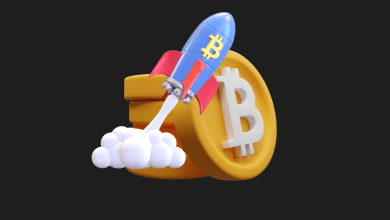Crypto Forks

In the ever-evolving landscape of blockchain and cryptocurrencies, the concept of a ‘fork’ has become fundamental.
Forks represent critical junctures in the life of a cryptocurrency, signifying change and adaptation. This article will delve into the nature of cryptocurrency forks, exploring their types, purposes, and implications in the digital asset domain.
What is a Cryptocurrency Fork?

A cryptocurrency fork is a divergence in the blockchain, occurring when there are two or more competing versions of a blockchain protocol.
Forks are typically the result of debates and disagreements within the community on the best path forward for the cryptocurrency and can lead to the creation of a new blockchain path while maintaining the legacy path.
Types of Cryptocurrency Forks
- Soft Fork: This is a backward-compatible upgrade to the blockchain. In a soft fork, only one blockchain remains valid as users adopt the update. Non-updated nodes can still operate and validate transactions, but they may find some transactions invalid if they do not update.
- Hard Fork: A hard fork is a permanent divergence from the previous version of the blockchain, and nodes running previous versions will no longer be accepted by the newest version. This type of fork requires all nodes to upgrade and agree on the new version.
The Role and Utility of Forks

- Protocol Upgrades: Forks can be used to introduce new features, address security issues, or improve the functionality and scalability of a blockchain.
- Governance Decisions: They can reflect differing opinions within the community on the direction the blockchain should take, often leading to significant changes in governance.
- Creation of New Currencies: Hard forks can result in the creation of a new cryptocurrency, as was the case with Bitcoin and Bitcoin Cash.
Impacts of Forks on the Cryptocurrency Ecosystem

- Market Volatility: Forks can lead to uncertainty and short-term market volatility.
- Community Division: They can split a community, often leading to heated debates and diverging paths.
- Technological Innovation: Forks can encourage innovation, as different groups explore new directions and possibilities for the blockchain.
Challenges and Considerations in Forks

The process of forking a blockchain can be challenging, requiring broad consensus and careful planning. There is also the risk of confusion among users and potential security vulnerabilities during the transition period.
Cryptocurrency forks are pivotal events in the blockchain world, marking the evolution and diversity of digital currencies. They play a crucial role in the development and governance of blockchains, shaping the trajectory of cryptocurrencies.
Understanding the nature and impact of forks is essential for anyone engaged in the crypto space, offering insights into the dynamic and decentralized nature of these digital assets.
You may also like this content
Follow us on TWITTER (X) and be instantly informed about the latest developments…











